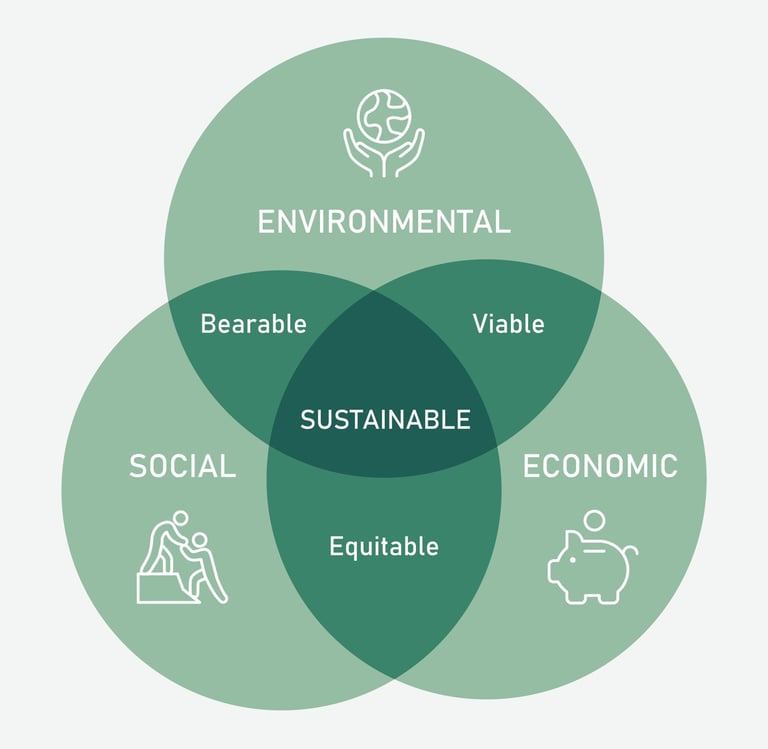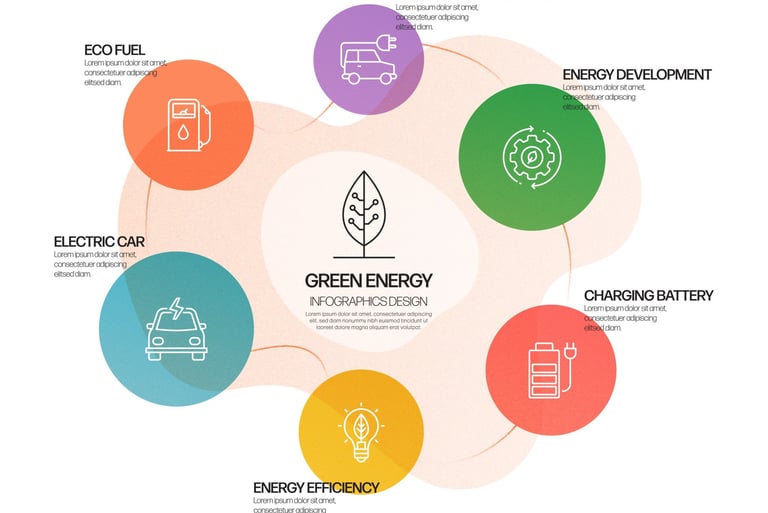Why is Sustainable Marketing Procurement Crucial for Brands Today?
Discover the 5 key benefits of sustainable marketing procurement, including how it enhances brand reputation, creates long-term cost savings, and mitigates risk.
MARKETING
The Procure 4 Marketing Team
11/11/20234 min read


Quick Answer: Why is sustainable procurement crucial?
Sustainable marketing procurement is crucial because it is a strategic imperative, not just an ethical choice. It directly enhances brand reputation and trust by aligning with consumer values. It also creates long-term cost savings by reducing waste and energy use (lowering TCO), mitigates supply chain risks by ensuring regulatory compliance and avoiding scandals, drives innovation through stronger supplier partnerships, and attracts top talent who want to work for responsible companies.
What is Sustainable Marketing Procurement?
Sustainable marketing procurement is a strategic approach to sourcing marketing goods and services (e.g., print, ad agencies, event materials) that considers the environmental, social, and economic impacts of your purchasing decisions.
It's a shift away from focusing only on price and quality, to a more holistic model that balances three key pillars:
1. Environmental: Reducing your carbon footprint, minimizing waste, using renewable resources, and choosing eco-friendly materials (e.g., recycled paper, biodegradable packaging).
2. Social: Ensuring fair labor practices, promoting diversity in your supply chain, protecting human rights, and supporting local communities.
3. Economic: Focusing on the Total Cost of Ownership (TCO), not just the initial price. This includes the long-term economic benefits of durability, energy efficiency, and supporting sustainable local economies.
Why is Sustainable Procurement a Strategic Imperative? (5 Key Benefits)
Adopting this strategy is not just about "doing good"; it's a core business function that delivers tangible results.
1. It Enhances Brand Reputation and Trust
Why it Matters: Today's consumers, especially Millennials and Gen Z, make purchasing decisions based on a brand's values. They actively seek out and are loyal to companies that demonstrate a genuine commitment to social and environmental responsibility.
Real-World Example: Brands like Patagonia have built their entire reputation on sustainability. This attracts a fiercely loyal customer base and top talent who want to work for a company that reflects their personal values.
2. It Creates Long-Term Cost Savings
Why it Matters: While sustainable options can sometimes have a higher initial cost, they almost always lead to significant long-term savings by focusing on efficiency and reducing waste.
Real-World Example: Switching your product packaging from virgin plastic to a lighter-weight, recycled material might not only be more sustainable but can also reduce your per-unit material and shipping costs, directly boosting your bottom line.
3. It Mitigates Risk and Ensures Compliance
Why it Matters: Supply chains are full of risks. Partnering with unethical or non-compliant suppliers can lead to legal fines, campaign-derailing scandals, and supply chain disruptions.
Real-World Example: By proactively ensuring your suppliers meet all environmental and labor regulations, you avoid the massive financial and reputational damage that comes from a media exposé on poor factory conditions or illegal pollution.
4. It Drives Innovation and Stronger Partnerships
Why it Matters: Pursuing sustainability forces you to ask new questions and challenge old processes. This often leads to innovation. It also requires building deep, collaborative relationships with suppliers to achieve shared goals.
Real-World Example: A company and its packaging supplier work together to co-develop a new, fully compostable material. This collaboration strengthens their partnership and gives the company an innovative, exclusive product to market.
5. It Makes a Positive Environmental & Social Impact
Why it Matters: This is the foundational benefit. Your procurement choices have a real-world impact. By choosing sustainable options, your company actively contributes to a healthier planet and a fairer society.
Real-World Example: By optimizing logistics routes for marketing materials and prioritizing local suppliers, a company can measurably reduce its carbon footprint and support community businesses, turning its procurement spend into a force for good.
How to Get Started with Sustainable Procurement (4 Key Steps)
Develop a Formal Policy: Define what sustainability means for your company. Align your procurement policy with your broader Corporate Social Responsibility (CSR) goals and set clear, measurable targets (e.g., "Reduce packaging waste by 30%").
Integrate Sustainability into Supplier Selection: Add sustainability criteria to your supplier evaluation scorecards. Ask potential partners about their environmental policies, labor practices, and diversity initiatives.
Collaborate with Your Suppliers: Don't just demand change; work with your key suppliers to help them meet your new standards. Share your goals and explore joint initiatives to improve.
Measure and Report Your Progress: Track your performance against your goals (e.g., percentage of spend with sustainable suppliers, reduction in carbon emissions). Be transparent about your progress in public reports to build trust.
Frequently Asked Questions (FAQ)
Q1: What's the difference between sustainable procurement and ethical procurement? A: They are closely related and often overlap. Ethical procurement primarily focuses on the social pillar – fair labor, human rights, anti-corruption. Sustainable procurement is broader, encompassing ethical/social concerns plus environmental and long-term economic considerations.
Q2: What is "greenwashing"? A: Greenwashing is a deceptive marketing practice where a company spends more time and money claiming to be "green" and "eco-friendly" than on actually implementing sustainable practices. It's a major ethical pitfall that damages brand trust.
Q3: Does sustainable procurement really save money? A: Yes, often significantly in the long run. While some sustainable materials might cost more initially, the focus on efficiency (less energy, less waste), durability (longer product life), and risk reduction (avoiding fines) often leads to a lower Total Cost of Ownership (TCO).





